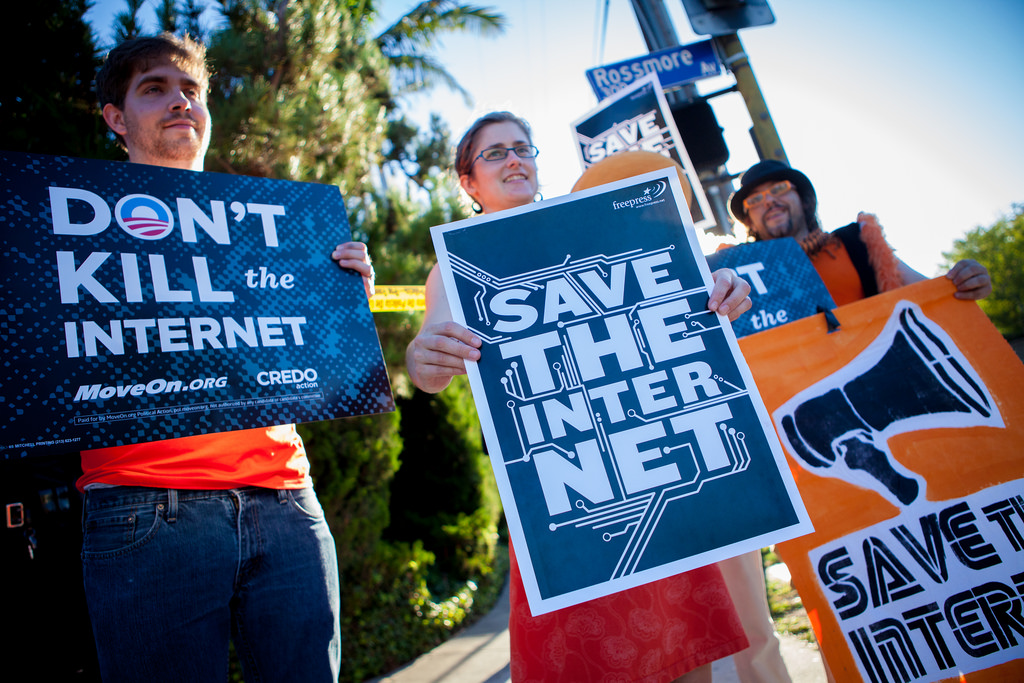Views expressed in opinion columns are the author’s own.
The Federal Communications Commission, led by former Verizon employee Ajit Pai, has announced plans to repeal net neutrality in December. The Obama-era regulations that created net neutrality forced internet service providers to treat all websites the same. This means when we pay a provider for internet access, we get all sites without any discrimination among content.
In a recent petition, the American Civil Liberties Union summed it up pretty well: “Any proposal that undermines net neutrality violates our freedoms of speech, expression, and inquiry and risks unfair discrimination against low-income communities and communities of color.” For all these reasons, we must preserve net neutrality.
A world without net neutrality would look quite different. Companies like Verizon or Comcast would be given the power to “carve the internet into fast and slow lanes,” giving preferential treatment to companies that pay them more and slowing down those that do not. The negative implications are obvious. Large companies could afford to pay higher fees to keep their sites accessible, but smaller groups or individuals would be pushed out. It also gives providers the power to slow down or block sites whose content they do not approve of. This discrimination would change the very nature of the internet as an open and equal forum.
Net neutrality is especially important for vulnerable communities. Throughout American history, media has been concentrated in the hands of the powerful. These gatekeepers have used their privilege to perpetuate inequalities and protect the status quo. Newspapers, broadcast stations and movie studios have long been predominantly white-owned. This has made American media a tool of white supremacy — telling stories that celebrate whiteness but stereotype people of color.
The internet has altered this arrangement. Communities of color may own less than 3 percent of TV stations, but power on the internet works differently. The combination of low costs and large platforms has created an invaluable political tool. An open internet places ideas at the forefront, giving a louder voice to the historically silenced. As a result, modern social justice activists have come to rely on it.
While civil rights leaders in the ’60s made telephone calls to get the word out, today’s struggle is broadcasted online. As activist DeRay McKesson put it, “The tools that we have to organize and to resist are fundamentally different than anything that’s existed before in black struggle.” Videos of protest and police violence have been shared via Facebook, Vine, Periscope, Twitter, Instagram and more. The Black Lives Matter movement itself originated as a hashtag.
Whether it’s happening through social media platforms, email alerts or small sites made by local organizers, the resistance is based online. The FCC’s plan to end net neutrality threatens the democratization of the online space. For all internet users, it will mean blocked sites, slower streaming and higher fees. For vulnerable communities, it could mean losing the most important organizing tool they have. If the ability to quickly and inexpensively share information goes away, white institutions will become more powerful.
But there may be hope. The internet might be able to facilitate the political mobilization it needs to save itself. The word is already spreading that we need to act now. Social media is flooded with support for the regulations, and calls to Congress are increasing.
Slow internet is bad for everyone. For vulnerable communities, it could be catastrophic. In an obvious battle of popular good versus corporate greed, we must call upon our collective strength.
Jack Lewis is a senior government and politics major. He can be reached at jlewis20@umd.edu.



